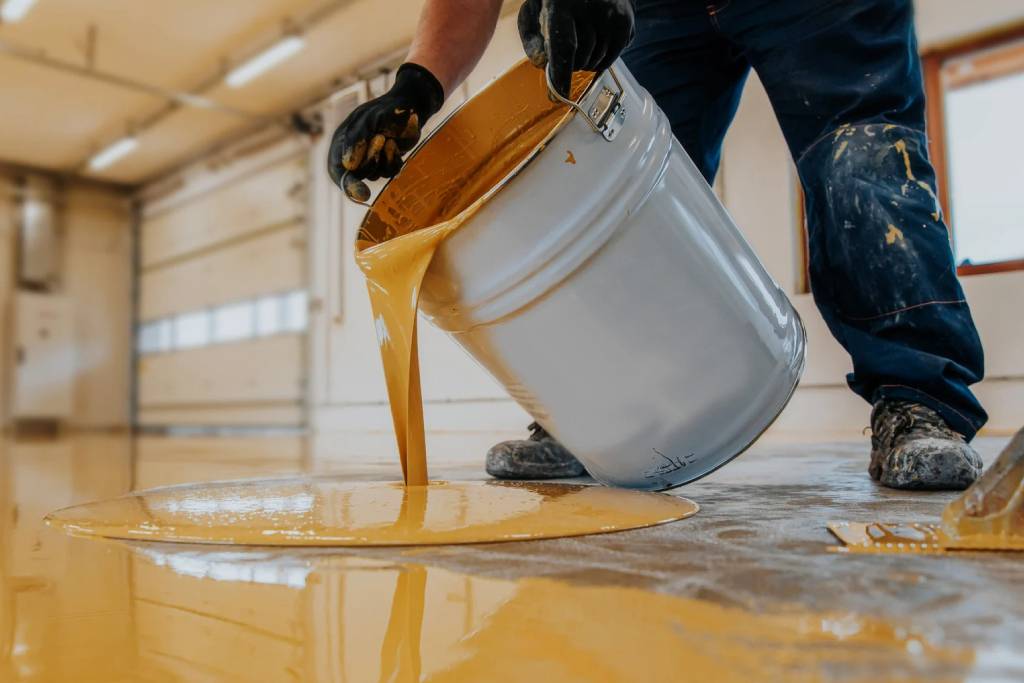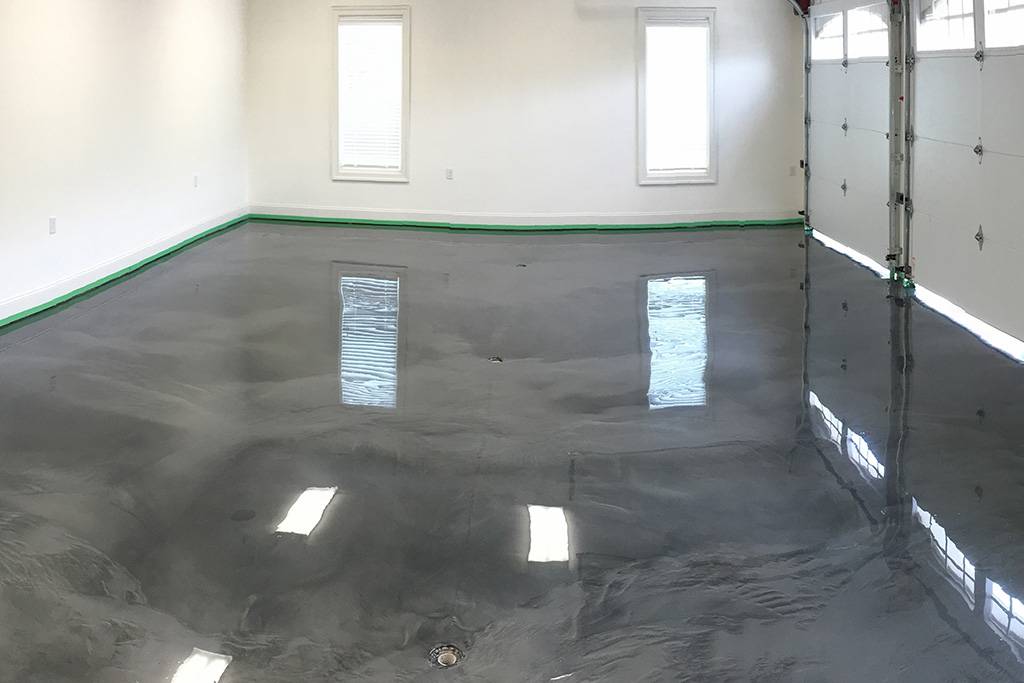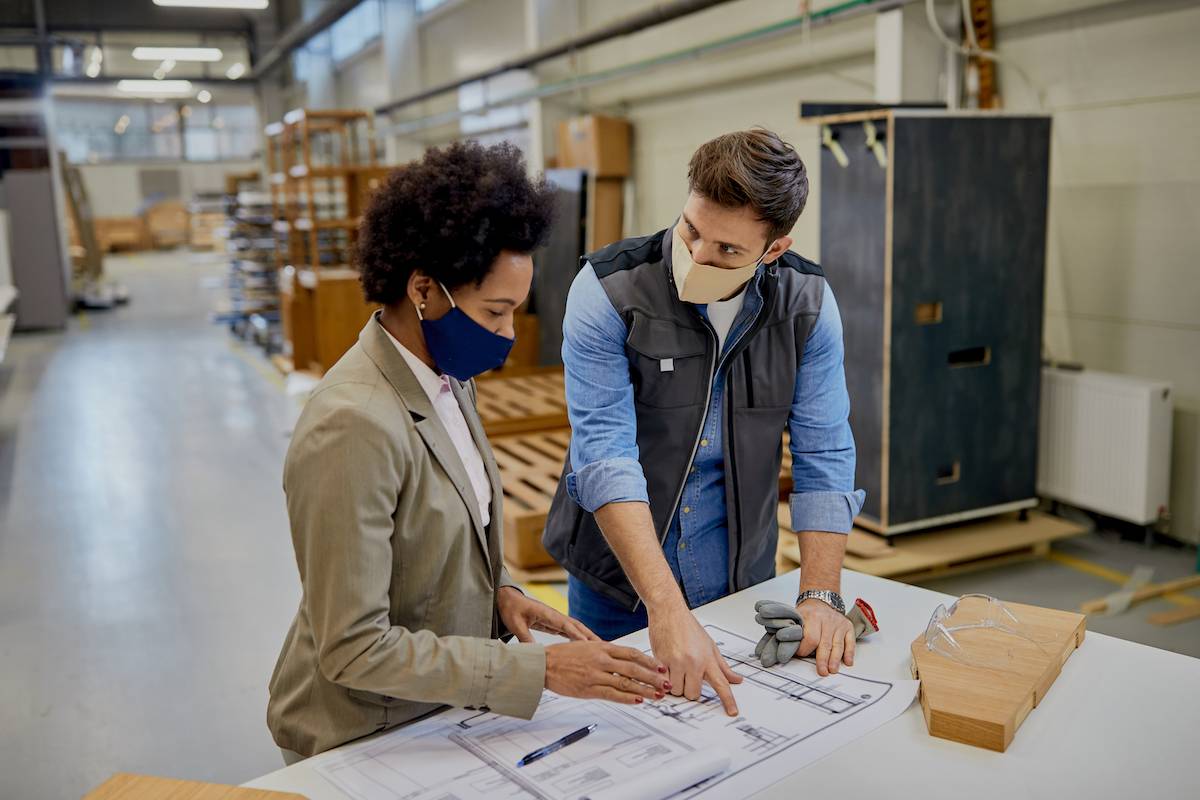Epoxy FloorING Washington DC Overview
Epoxy floors are a popular choice for commercial and residential properties in Washington DC, Maryland, and Northern Virginia. This type of flooring offers durability, low maintenance, and aesthetic appeal.
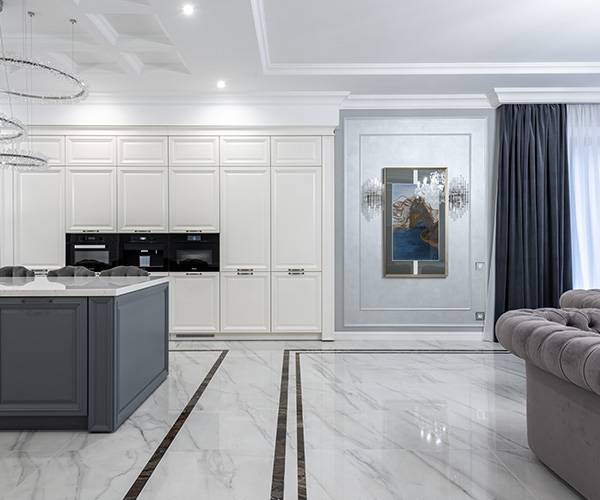
Residential Epoxy Floors
Residential epoxy floors are a durable and low-maintenance choice for garages, basements, and high-traffic areas. Homeowners enjoy design options, easy cleaning, water and chemical resistance, and protection for the concrete substrate. Installation involves surface preparation, primer, and epoxy application by skilled professionals for a long-lasting finish.
Commercial Epoxy Floors
For commercial properties in Washington DC, Maryland, and Northern Virginia, epoxy floors are a popular choice due to its hard-wearing and visually appealing nature. It is particularly suitable for warehouses, showrooms, and industrial facilities because it can withstand heavy foot traffic and machinery.
In commercial settings, epoxy floors can offer additional benefits such as:
- Enhanced safety due to slip-resistant surfaces
- Improved workplace aesthetics
- Compliance with hygiene and cleanliness standards
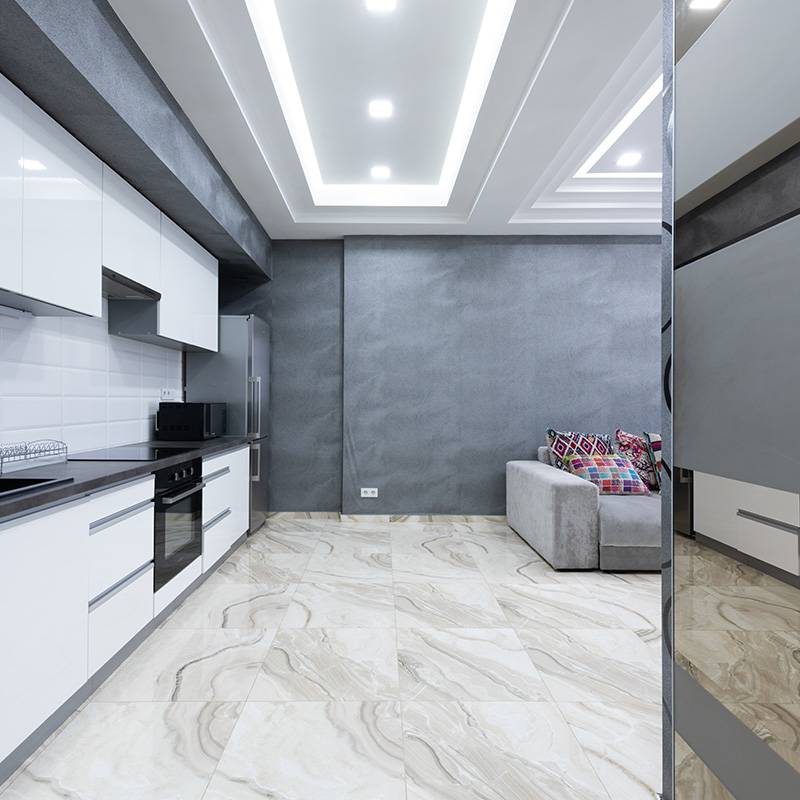
The installation method for commercial epoxy flooring is similar to residential applications. Professional installers in the District ensure a proper substrate preparation and application method to achieve a long-lasting and durable finish. Customization options, such as colors and patterns, can also be incorporated to match the branding and design preferences of the commercial property.
Epoxy Floor Systems
Epoxy floor systems have become a popular choice for residential, commercial, and industrial applications due to their durability, versatility, and aesthetic appeal. The following sub-sections discuss the various types of epoxy floor systems and their properties.
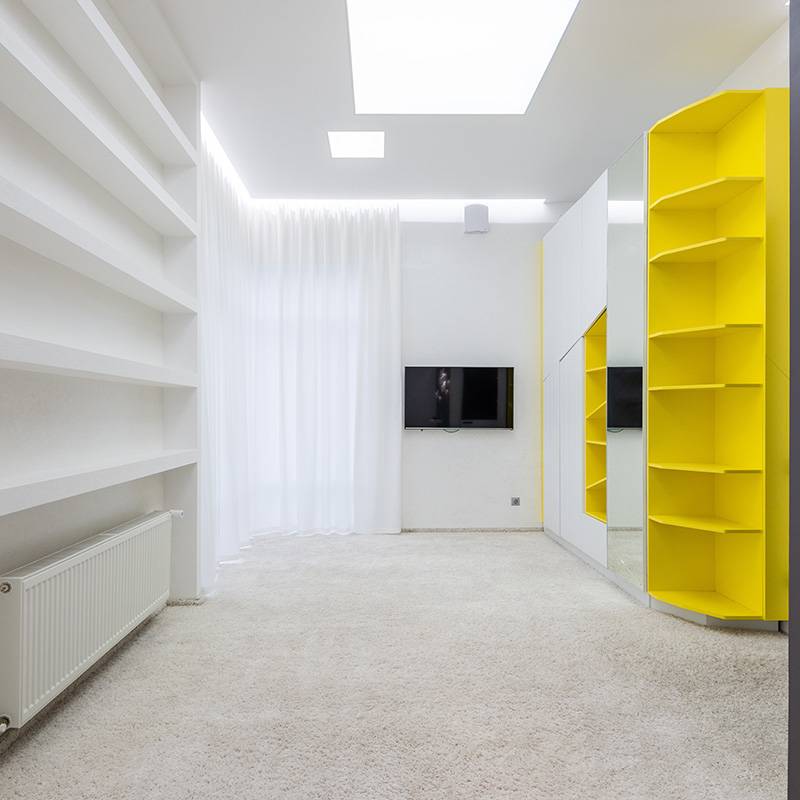
Solid Pigment Epoxy
Contractors offers solid pigment epoxy to provide a uniform, single color finish with a smooth and glossy appearance. The solid pigment epoxy is known for its ability to withstand heavy foot traffic, chemical spills, and mechanical abuse, making it an excellent choice for environments that demand an extremely durable solution. These systems are commonly used in garages, workshops, and industrial facilities.
Some notable features of solid pigment epoxy include:
- High resistance to chemicals, abrasions, and impacts
- Easy to maintain and clean
- Variety of color options to match the surrounding décor
Metallic Epoxy
Metallic epoxy flooring systems are a unique and attractive addition to any space. By incorporating metallic pigments into the epoxy resin, these floors can create a stunning visual effect with a three-dimensional appearance. This type of flooring system is particularly suitable for commercial spaces, such as retail stores, restaurants, and showrooms, where an eye-catching floor can enhance the overall ambiance.
Key aspects of metallic epoxy include:
- High-gloss finish with a reflective surface
- Unique, dynamic patterns that create depth and movement
- Customizable color options and combinations
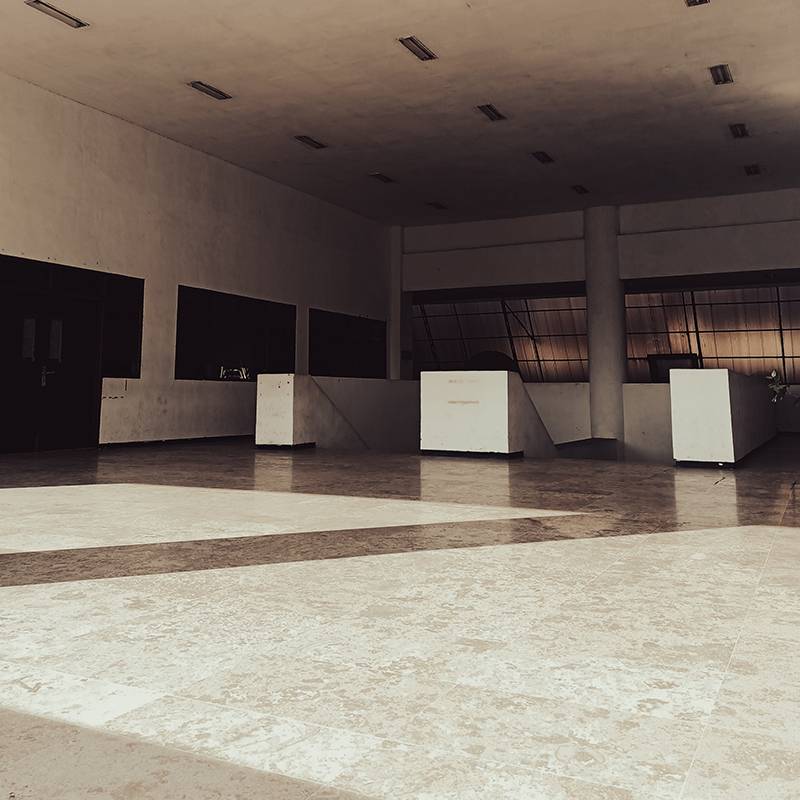
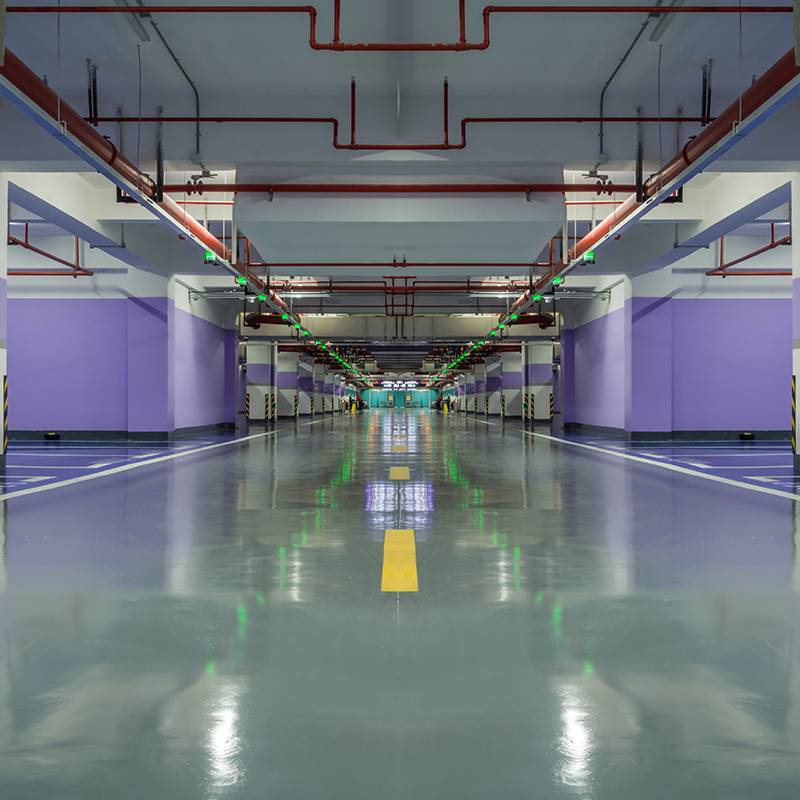
Multi-Layered Epoxy
Multi-layered epoxy flooring systems involve the application of multiple layers of epoxy materials, which can include solid pigments, decorative flakes or chips, and clear topcoats. This type of flooring system is versatile and can be customized to create a beautiful job and to meet specific customer needs.
Some benefits of multi-layered epoxy flooring systems are:
- Ability to incorporate decorative flakes or chips for added visual interest
- Enhanced slip resistance through the addition of aggregate materials
- Increased durability due to the multiple layers of protection
Whether it’s for a residential garage or a commercial showroom, epoxy flooring systems provide a range of options to enhance the functionality and appearance of any space. Consider the specific requirements and desired aesthetic of the area when selecting the appropriate epoxy floor system to achieve a long-lasting, attractive, and durable flooring solution.
Preparation and Installation
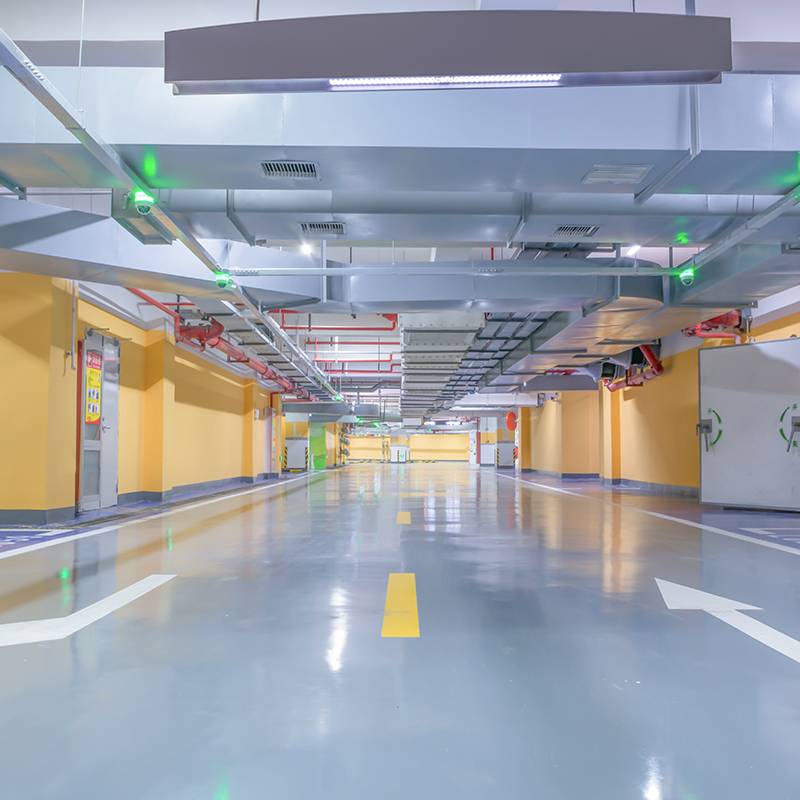
Concrete Floor Preparation
Before starting an epoxy floor install, it is crucial to properly prepare the concrete floor. This involves several steps to ensure the surface is clean and free from contaminants, which could compromise the adhesion of the epoxy coating. First, the concrete is inspected for cracks, which are repaired if necessary. Then, the floor is either mechanically ground or shot-blasted to remove any existing coating or sealer and to open the pores of the concrete.
Following this, the entire surface is cleaned using industrial-grade vacuuming systems to remove dust and debris. Finally, any oily or greasy stains are treated with specialized degreasers and solvents to remove any residue.
Epoxy Coating Process
The epoxy installation process starts with mixing the epoxy resin and hardener in the correct proportions. Once the components are blended, the mixture is applied to the prepared concrete floor within a specified time frame to guarantee the best results.
The installation process typically involves three main steps:
- Primer application: A primer coat is applied to the prepared concrete surface to ensure optimal adhesion and to seal any potential moisture issues. This coat is left to dry and cure for a specified period, usually 12 to 24 hours.
- Body coat application: The epoxy body coat is applied at the recommended thickness, usually between 10 and 30 mils. It is essential to carefully monitor the application rate and maintain a consistent thickness throughout the surface. This coat is left to cure for another specified period, which varies depending on the product used.
- Broadcast application (optional): If a slip-resistant or decorative surface is desired, a fine aggregate or colored flakes can be broadcast onto the wet epoxy body coat before it cures. This creates a textured finish and adds an element of visual appeal.
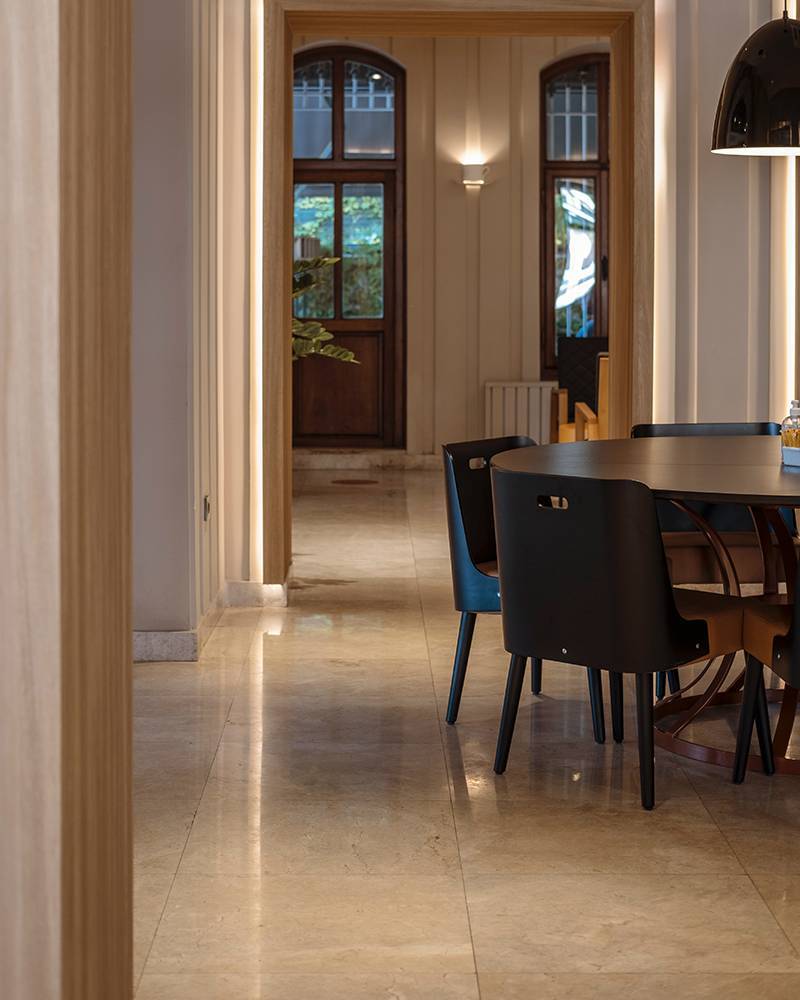
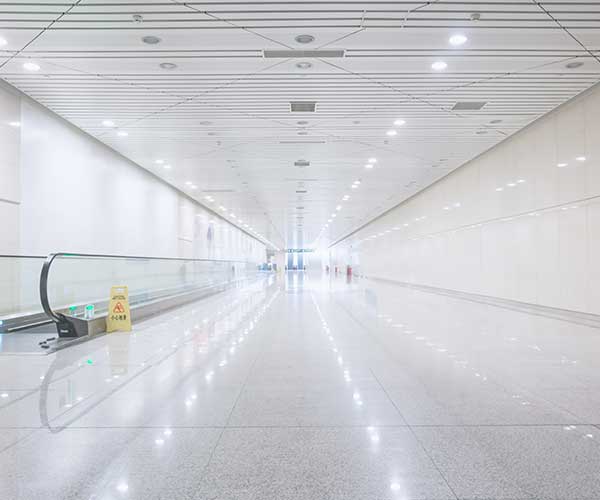
Top Coat Application
After the body coat has adequately cured, a clear top coat (polyurethane) is applied to seal and protect the epoxy flooring. This top coat can be either water or solvent-based and provides an additional layer of durability and resistance to abrasion, chemicals, and UV exposure. The top coat is typically spread at a rate of 3 to 5 mils per coat, depending on the product’s specifications.
After the top coat has been applied, it is allowed to cure for another 24 to 72 hours before the floor is ready for use. Following these steps ensures a high-quality, long-lasting epoxy flooring installation that can withstand the demands of various industries in Washington, DC.
Common Applications

Garage Floor
Epoxy flooring is an excellent choice for garage floors due to its durability, resistance to chemicals, and easy maintenance. It creates a high-performance surface that withstands heavy vehicles and protects concrete from damage.

Basement Floors
Epoxy flooring benefits basement floors by providing a seamless, waterproof surface that safeguards against moisture and mold. It transforms basements into clean, modern spaces, increasing property value.

Commercial Kitchens
Epoxy flooring is ideal for kitchens, meeting safety and cleanliness standards. Its seamless and slip-resistant surface is easy to clean and resistant to stains from food spills, ensuring a durable and hygienic flooring solution.
Advantages of Epoxy Flooring

Durability and Resistance
Epoxy flooring is a highly durable and resistant flooring solution. It is known for its ability to withstand heavy foot traffic, making it a suitable option for commercial and industrial areas. Quality craftsmanship ensures that epoxy floor coatings can handle spills, including oil spills, without deteriorating. The use of high-quality products and expert installation techniques further enhances the durability of the new flooring.

Customizability and Aesthetics
One of the significant aspects of epoxy coatings is the endless color combinations and design options available. This customizability allows clients to find the perfect match for their specific environments and preferences. Epoxy flooring can be tailored to achieve a unique and visually appealing finish that complements the overall design and aesthetics of a space.

Easy Maintenance
Epoxy floor coating provides a seamless surface that is easy to clean and maintain. The non-porous nature of epoxy allows for quick and efficient cleaning, ensuring the floors remain in pristine condition. With proper care and maintenance, epoxy flooring continues to look beautiful and perform exceptionally well over time.
Hiring Professional Contractors

Quality Service
When it comes to epoxy flooring in Washington D.C., hiring professional contractors is essential for achieving the desired results. These experts are skilled in installing epoxy floors and have extensive knowledge in handling concrete floors as well. By choosing the right contractor, you can ensure a durable, high-quality, and aesthetically pleasing epoxy floor for your residence or business.

Effective Communication
Professional contractors prioritize effective communication with their clients. This helps in understanding the specific needs and preferences of each project. The contractors take the time to discuss the job requirements, and they provide clear explanations of the installation steps. This fosters a strong client-contractor relationship and ensures smooth completion of the project.

Project Completion
Hiring a professional contractor for your epoxy flooring ensures timely and satisfactory completion. Their experience in managing the entire project from start to finish guarantees attention to detail and adherence to the timeline, giving you confidence in the outcome. With a well-organized approach and expertise in epoxy and concrete floors, they deliver satisfactory and streamlined installations, emphasizing quality service and effective communication for excellent results in Washington D.C.
Get a Free Estimate
Frequently Asked Questions
What is the average cost of epoxy flooring in Washington DC?
The average cost of epoxy flooring in Washington DC typically ranges from $3 to $12 per square foot. The price depends on several factors, such as the type of epoxy, the floor’s condition, the size of the area, and any customizations or additional labor requirements.
How do residential epoxy flooring services in Washington DC compare to commercial?
Residential and commercial epoxy floor contractors in Washington DC are similar, such as creating durable, low-maintenance, and visually appealing floors. However, commercial floors may require a higher grade of epoxy and specialized installation techniques to handle more substantial wear and tear, foot traffic, and weight-bearing loads. Residential applications tend to prioritize aesthetics and customization options.
How does a polished concrete compare to an epoxy floor?
Polished concrete has a significantly longer lifespan. Epoxy floors would require a new epoxy coating from time to time.
How can one use decorative chips in an epoxy floor coating project?
To use decorative chips in an epoxy floor project, apply them over the wet epoxy base coat and seal with a clear epoxy topcoat after curing.
What are the commonly found pros and cons of epoxy flooring?
Pros: Durability, Low repair needs, Aesthetic appeal and Slip resistance.
Cons: Installation time, Temporary odors and Moisture sensitivity.
How long does it take to have epoxy flooring installed in a Washington DC home?
An average epoxy flooring installation in a Washington DC takes around 2 to 3 days. It includes preparation, application, and curing time.
Can I use paint instead of epoxy for my garage?
You can but it is not durable and does not have any protection against wear and tear.
Can I use epoxy flooring for my basement floor?
Yes, epoxy floor coating is a popular and durable option for basement floors, offering protection and easy to wipe.
Can I use epoxy floors as my garage floor in Washington DC?
Yes, epoxy is a great choice for garage floors. It is resistant to oil spills, easy to clean and offers custom designs with multiple finish options.
Can an epoxy floor withstand the weight of a garage door?
Yes. epoxy floors are strong and resilient to heavy equipment and movement.
How is the cost of epoxy flooring determined for a specific area size?
The cost of epoxy flooring for a specific area size is typically calculated by multiplying the per-square-foot rate by the total floor area. Extra charges can be added for floor preparation, repairs, customizations, or additional labor requirements, affecting the final cost. It’s always advisable to get multiple quotes from different companies to ensure a competitive price for your project.

